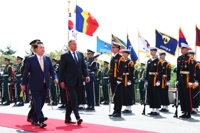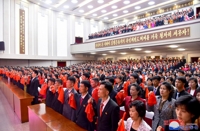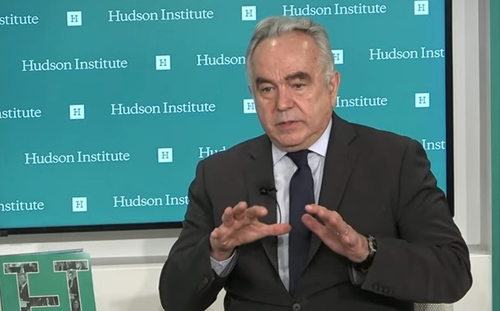Int'l human rights group voices concerns over Seoul's ban on sending of anti-N.K. leaflets
SEOUL, Feb. 20 (Yonhap) -- An international human rights group has raised concerns over South Korea's recently legislated ban on anti-North Korea leaflets, taking issue with its lack of clarity and possibly broad scope of prohibition.
Human Rights Watch, a New York-based organization, made the claim in an opinion it sent to Seoul's unification ministry.
In December, South Korea's parliament passed a bill penalizing the sending of anti-Pyongyang propaganda leaflets into the North for the safety of people in border regions where such leafleting usually took place.
The law "imposes strict limitations to some activities of North Korean escapee and civil society organizations that aim to send and receive information and ideas to people in North Korea," the organization said in the opinion posted on its website.
"Most of these restricted activities are protected by the freedom of expression recognized in article 19 of the Universal Declaration of Human Rights and article 19 of the International Covenant on Civil and Political Rights, which South Korea ratified in 1990," it added.
For years, North Korean defectors in the South and conservative activists have flown the leaflets to the North via balloons to help encourage North Koreans to eventually rise up against the Pyongyang regime.
North Korea has bristled at the propaganda campaign amid concern that an influx of outside information could pose a threat to its leader Kim Jong-un.
North Korea has repeatedly called for an end to the leafleting campaign. The issue has long been a source of tension between the two Koreas, which are still technically at war because the 1950-53 Korean War ended in a truce, not a peace treaty.
The organization said that freedom of expression could be limited to protect national security but "only in serious cases of political or military threat to the entire nation."
It claimed that the ban, however, lacks "clarity about what acts are specifically forbidden," which it said "may challenge the compliance of the amendment with international human rights standards."
The organization also took issue with the severity of the law's punishment, which it said is "excessive related to the type of offense and may violate the principle of proportionality.
Under the law, a violation could lead to imprisonment to up to three years or a fine of up to 30 million won (US$27,000).
kokobj@yna.co.kr
(END)
-
 S. Korea marks 30th anniv. of Korean Pavilion at Venice Biennale with contemporary art
S. Korea marks 30th anniv. of Korean Pavilion at Venice Biennale with contemporary art -
 Artist Lee Bae captures ethereal Korean aesthetics at Venice Biennale
Artist Lee Bae captures ethereal Korean aesthetics at Venice Biennale -
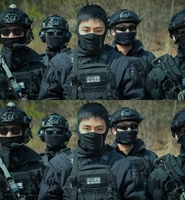 Facebook page unveils photos of BTS member V in counter-terrorism unit gear
Facebook page unveils photos of BTS member V in counter-terrorism unit gear -
 Ateez member Yunho throws first pitch at MLB match between Dodgers, Mets
Ateez member Yunho throws first pitch at MLB match between Dodgers, Mets -
 Gov't likely to accept university chiefs' request to lower med school enrollment quota
Gov't likely to accept university chiefs' request to lower med school enrollment quota
-
 Artist Lee Bae captures ethereal Korean aesthetics at Venice Biennale
Artist Lee Bae captures ethereal Korean aesthetics at Venice Biennale -
 S. Korea marks 30th anniv. of Korean Pavilion at Venice Biennale with contemporary art
S. Korea marks 30th anniv. of Korean Pavilion at Venice Biennale with contemporary art -
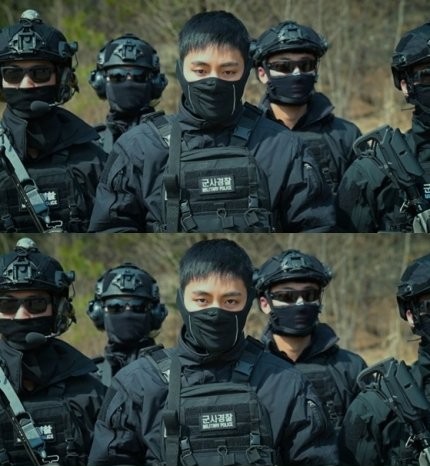 Facebook page unveils photos of BTS member V in counter-terrorism unit gear
Facebook page unveils photos of BTS member V in counter-terrorism unit gear -
 Gov't likely to accept university chiefs' request to lower med school enrollment quota
Gov't likely to accept university chiefs' request to lower med school enrollment quota -
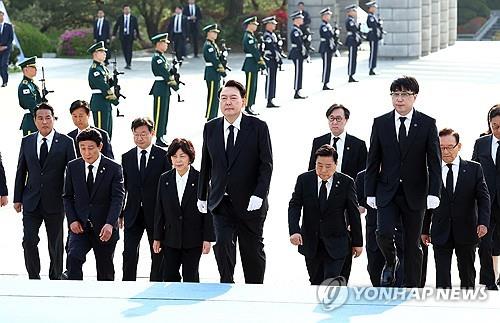 Yoon's approval rating sinks to lowest point since taking office
Yoon's approval rating sinks to lowest point since taking office
-
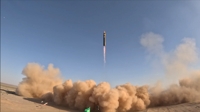 (LEAD) N. Korea sends economic delegation to Iran amid suspected military cooperation
(LEAD) N. Korea sends economic delegation to Iran amid suspected military cooperation -
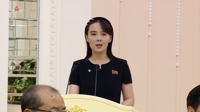 N.K. leader's sister slams joint S. Korea-U.S. military drills
N.K. leader's sister slams joint S. Korea-U.S. military drills -
 Author of ADOR's 'internal document' refutes allegations of spinoff plot
Author of ADOR's 'internal document' refutes allegations of spinoff plot -
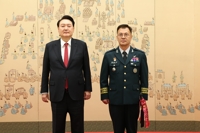 Yoon says N. Korea must not dare challenge S. Korea
Yoon says N. Korea must not dare challenge S. Korea -
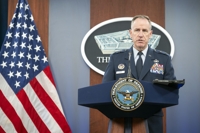 Pentagon stresses close consultation with S. Korea after simulated N.K. 'nuclear counterattack' drill
Pentagon stresses close consultation with S. Korea after simulated N.K. 'nuclear counterattack' drill
















